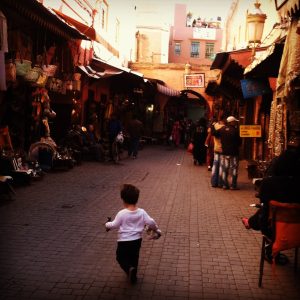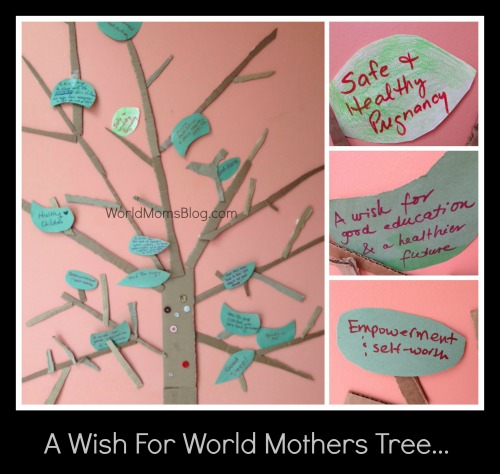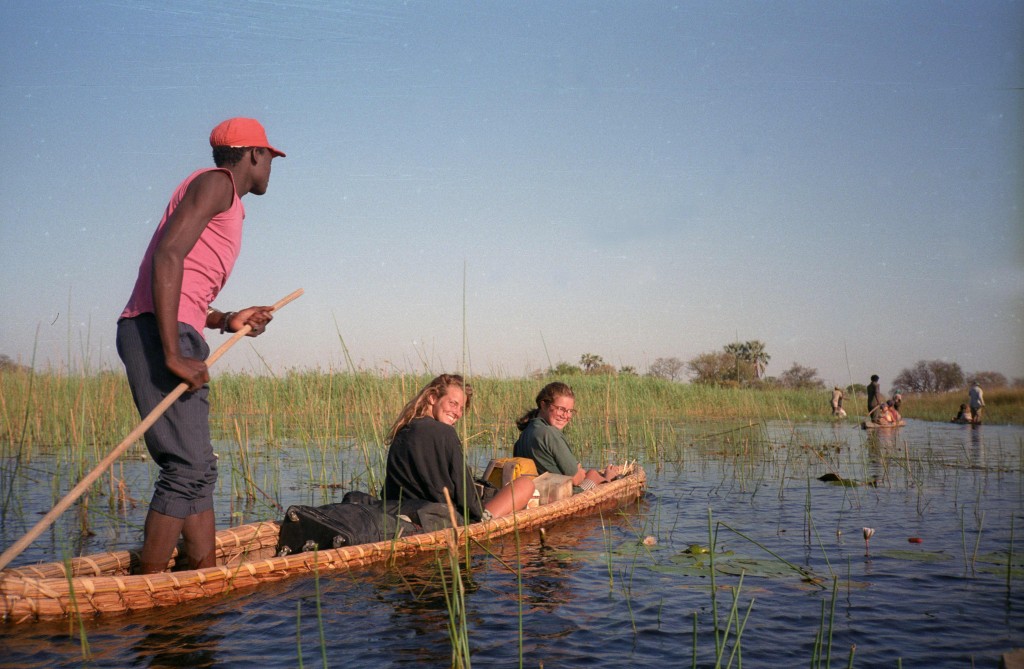
by Mama B (Saudi Arabia) | Jul 3, 2013 | 2013, Politics, Religion, Saudi Arabia, Transportation, Travel, Uncategorized, Women's Rights, World Motherhood
 We always talk about “first world problems,” and, I, most of the time, complain about women not being able to drive in Saudi Arabia in the “first world problem” sense. “My driver is late!” or “It’s too hot in the car. I wish he’d switch on the AC before I get in” or “Why does it take so long for my driver to answer his phone!”
We always talk about “first world problems,” and, I, most of the time, complain about women not being able to drive in Saudi Arabia in the “first world problem” sense. “My driver is late!” or “It’s too hot in the car. I wish he’d switch on the AC before I get in” or “Why does it take so long for my driver to answer his phone!”
It’s easy for me to forget that for the majority of women in Saudi, it is very much a paralyzing issue. As I was leaving Saudi last week, I was in the airport lounge, and one of the women working there was having a private conversation on her mobile which got progressively louder. She kept saying, “Swear he’s ok! Why can’t I talk to him?”
After she hung up she said to me, “My son has had an accident!” I asked if he was ok. She told me she didn’t know and that someone at the scene had called her and told her about it, but they wouldn’t give him the phone and wouldn’t give her details. I asked why she didn’t just go to him, and she told me she couldn’t.
“Surely your supervisor wouldn’t have a problem with you leaving early to go there!” I said.
“I don’t have any way of getting there!”, she said. “My son is usually my driver. I don’t have brothers, and I’m divorced.”
And that’s the simple truth. Her son was on a street somewhere, in God knows what state ,and she was stuck at work. She eventually took a cab and declined the offer to use my car.
I always dread talking about women driving in Saudi because it’s been talked to death, and there’s nothing to discuss, really, since the fact that women should be allowed to drive is such an obvious one. It’s like discussing if women should be allowed to work… or walk even. Not driving means different things to different people. To me, it’s something I don’t think about on a day-to-day basis, unless we have a driver crisis. But even then, I rely on my mother’s, sister’s or brother’s driver to get me where I need to go, and I have never been stranded at home or elsewhere because of it. I forget that this is not the case for everyone.
Yes, some of my friends can’t do lunches on certain days because of the driver issues (lack of reliable ones or lack of ones all together), so when their husbands work they have to stay home. While many, many Saudi families have a driver working for them, not all of them do. And honestly, who cares if I can’t get to my family visit on time or to the shops before they close, when this mother couldn’t get to her son, who I pray was not badly injured in this accident.
And if, God forbid, he was badly injured, or worse, and he is her only “mahram” (male guardian), then she effectively has to put her life on hold till he gets better. And if it’s not a “getting better” situation, then she is stuck. Driving will be only one of her problems.
We do have taxis, which are generally decent, but many women don’t like to use them or the men in their lives don’t like them to. Which is all fine and dandy if these men are willing to be their wives’ personal chauffeurs, but if they refuse, then the women are stuck. But they do sometimes say “no,” and their wives, sisters, daughters comply. I have never really asked my husband how he would feel about me riding a taxi, since there never was a need to before, but I know that even if he didn’t want me to ride one, for what ever reason, he would never tell me I couldn’t.
Work has already begun on the metro system in Riyadh, and I am assuming that it will have a similar set up to Dubai, where there is a women’s tram. (Although in Dubai it is optional to go on that tram.) It will be interesting to see what we end up with, but is public transportation the answer to this problem? No.
Women being allowed to drive is a change that has to happen. It’s going to happen. I can guarantee that, but when? And the assumption that this is a governmental decision is totally wrong as the government is doing what the majority of the population wants.
When the subject of women driving is raised, it is always surprising how many people are against it. Women included. When they decided to introduce girls’ schools, the community also spoke out against it and were fearful and pessimistic. But the government just made the change, and the people got used to it. Now more than half the college graduates in Saudi are women! So, I hope we just rip the band-aid off.
And maybe the people will come around eventually and want this change, but how long do we want to wait? So many changes have come into our country, culture and environment that people are afraid to open up anymore, but there will be no progress without it.
Maybe I am wrong though. Maybe the views have changed, but the loudest voices are still of those who are against this. In Saudi the moderate voice is the one that talks at home among friends but doesn’t really rock the boat. The extreme views tend to be loud and very well organised.
A little side note to mention is there is no law against women driving. But there is a law against driving without a license, and women can’t get their licenses in Saudi.
It should just be done! Just as the 30 women were elected into the shours counsil by royal decree one morning, this change can happen too. It would, by no means, be mandatory, and whoever doesn’t want to drive, doesn’t have to. But for the women who are paralyzed, stuck and unable to get to their sons when they are hurt, a key to a car is not much to ask.
Do you agree with me that sometimes making unpopular decisions that will better your country is ok? Or is the government’s duty? Or do you think what the people want is more important?
This is an original post to World Moms Blog by Mama B from Saudi Arabia. She can be found writing at her blog, Ya Maamaa.
Photo credit to hhdoan who holds a Creative Commons Attribution license.

Mama B’s a young mother of four beautiful children who leave her speechless in both, good ways and bad. She has been married for 9 years and has lived in London twice in her life. The first time was before marriage (for 4 years) and then again after marriage and kid number 2 (for almost 2 years). She is settled now in Riyadh, Saudi Arabia (or as settled as one can be while renovating a house).
Mama B loves writing and has been doing it since she could pick up a crayon. Then, for reasons beyond her comprehension, she did not study to become a writer, but instead took graphic design courses. Mama B writes about the challenges of raising children in this world, as it is, who are happy, confident, self reliant and productive without driving them (or herself) insane in the process.
Mama B also sheds some light on the life of Saudi, Muslim children but does not claim to be the voice of all mothers or children in Saudi. Just her little "tribe." She has a huge, beautiful, loving family of brothers and sisters that make her feel like she wants to give her kids a huge, loving family of brothers and sisters, but then is snapped out of it by one of her three monkeys screaming “Ya Maamaa” (Ya being the arabic word for ‘hey’). You can find Mama B writing at her blog, Ya Maamaa . She's also on Twitter @YaMaamaa.
More Posts

by Olga Mecking | Jul 1, 2013 | 2013, Being Thankful, Child Care, Family, Girls, Grandparent, Health, Husband, International, Life Lesson, Marriage, Me-Time, Motherhood, Netherlands, Parenting, Siblings, Travel, World Motherhood, Younger Children
 Imagine yourself in our situation. Your friends are getting married. The wedding is in beautiful Italy. You decide to go, even if it means leaving your two daughters with your parents-in-law, and just take the baby with you. Your in-laws arrive and you ask them to take your 3-year old to dancing class, show them where all the things are and tell them when to bring the girls to daycare. You’re excited. You pack your bags the day before the wedding and go to bed.
Imagine yourself in our situation. Your friends are getting married. The wedding is in beautiful Italy. You decide to go, even if it means leaving your two daughters with your parents-in-law, and just take the baby with you. Your in-laws arrive and you ask them to take your 3-year old to dancing class, show them where all the things are and tell them when to bring the girls to daycare. You’re excited. You pack your bags the day before the wedding and go to bed.
But you don’t sleep. Instead, you talk. You tell your husband that you’re not really happy with this arrangement. That you don’t trust your in-laws enough to leave your children with them. That you don’t even feel good about your decision to leave the children with anyone. In the end you start crying and tell your husband that your eldest daughter doesn’t like you and that you’re the worst mom ever.
And then your husband tells you that you’re an amazing mom. After you calm down and feel somewhat better he tells you that he’s not happy with this arrangement, either. You see, our little girl has just had the chicken pox, and according to my husband’s calculation, our baby would be at risk of getting it right during our trip to Italy. The baby was fussy for the last few days, he has had no fever, but his temperature is slightly elevated. What to do?
Consider two possibilities.
Number one: You decide to stay. You’re afraid that if he’s going to get the chicken pox, it will spoil your whole trip. You don’t want the other children to get it, too, and besides, traveling with a fussy baby full of ugly itchy red spots is no fun. You tell your in-laws in the morning. They stay for a few days, but that’s OK. Your MIL learns to accept your decisions and to get out of your way when you sit down to read a book. You learn to tell her when you’re overwhelmed and exercise your privileges as a mom.
When your children wake up in the morning, you feel as if you haven’t seen them for ages. You’re suddenly full of patience. You’re relieved that you didn’t have to leave without them. You braid your big girl’s hair in twelve pink little braids. You feel great. Your decision isn’t entirely selfless. You don’t trust your in-laws and don’t want to leave the girls with them, and that’s OK.
Number two: You wake up in the morning, check your baby’s temperature and decide he won’t get the chicken pox after all. You pack your bags, kiss the girls goodbye and leave to catch your flight. You have fun at the wedding, you dance and sing and eat delicious food. You realize that you haven’t had a vacation for ages. You enjoy waking up in the morning without having to get three children dressed and ready for the day. You get to have a whole conversation with your husband. You go back home and are happy to see your children again. You feel great and relaxed and you’re sure that going to that wedding was exactly what you needed right now. Your decision isn’t entirely selfish. You know very well that having a short vacation will make you more relaxed and a better mom. And that’s OK, too.
How did we choose? We stayed. I was sad not to be there when our friends said: “I do”. Our son didn’t get the chicken pox; his skin is silky smooth as always. So, was it a bad decision? No. Would it have been a bad decision had we gone? No. The thing is that while I decided to stay, if it hadn’t been for the chicken pox threat, I would have gone to that wedding.
You can make a selfish decision and still be a good mom. You can make a decision seen as selfless and make it for purely selfish reasons. It doesn’t matter. You’re a good mom.
Have you ever been in this sort of predicament? What did/would you do?
This is an original post to World Moms Blog from our writer and mother of three in The Netherlands, Olga Mecking.
The photograph used in this post is attributed to the author.
Olga is a Polish woman living in the Netherlands with her German husband. She is a multilingual expat mom to three trilingual children (even though, theoretically, only one is trilingual since she's old enough to speak). She loves being an expat, exploring new cultures, learning languages, cooking and raising her children. Occasionally, Olga gives trainings in intercultural communication and works as a translator. Otherwise, you can find her sharing her experiences on her blog, The European Mama. Also take a while to visit her Facebook page .
More Posts - Website
Follow Me:



by Natalia Rankine-Galloway (Morocco) | May 29, 2013 | Childhood, Economy, Expat Life, Eye on Culture, Humanity, Morocco, Parenting, Poverty, Travel
 My mom loves to tell stories about her girls…to anyone who will listen. One of her favorites is about my first plane ride home from her native Peru. At age 6, as I sat in the window seat watching Lima fade away beneath us, I turned to her and said (with wisdom far beyond my years my mum will add) “the trouble with Peru is that the Peruvians don’t take good care of it.”
My mom loves to tell stories about her girls…to anyone who will listen. One of her favorites is about my first plane ride home from her native Peru. At age 6, as I sat in the window seat watching Lima fade away beneath us, I turned to her and said (with wisdom far beyond my years my mum will add) “the trouble with Peru is that the Peruvians don’t take good care of it.”
Admittedly it is one of her less embarrassing stories, better by far than the one that has me passing most of a Greek holiday with a potty on my head. And lately, as my son gets older, I’ve been thinking more about it.
By the time we leave Morocco this fall, he will not quite be three. Throughout our time here, that fact made me sad. There is likely little if anything that he will remember about our year in Morocco and our travels in North Africa. But now, this has also made me slightly grateful.
I have started to see the cogs turning in his little head when we pass the women begging on the street, with toddlers his age strapped to their backs. I see him watching the kids selling cartons of tissues at the stop lights as I guiltily roll up the window.
As his little eyes observe more and more I am starting to be glad that we will leave before the questions start. He hasn’t progressed much past the basic two-word toddler interrogatives: dada gone? more biscuit? But I am imagining the questions forming, and I need more time to come up with good answers.
When he asks me about these babies on their mothers backs, or the ones selling on streets, what do I say? Moreover, how do you explain your own role in the perpetuation of this inequality. How do I explain that being asked for the 19th time in one day to spare just 1 dirham irritates me more and more in spite of the fact that had I given one each time, I would now be short only $2? How would I explain that the shoes he’s wearing would cover our gardeners weekly salary?
Observant though I might have been at age 6 about the socio-economics of Peru, it did not give me any head start on figuring out any actionable recommendations for the Peruvians about how to improve their problems of poverty, inequality, pollution. Nor do I have any for Morocco now, some 25 years later.
I am a big believer in my own and my son’s capacity to save the world. I take part in fundraising campaigns, donate to charity and volunteer. I will always encourage him to live a life of tolerance, patience and understanding. But when you live in the midst of an unequal society – to what extent are you compromising your principles by continuing to live in the manner to which you are accustomed?
So while I doubt that I will ever come up with any Nobel Peace prize winning solutions to global income inequality myself, I would at the very least time to come up with a way of explaining poverty to my son. I would like to be able to explain to him that he is lucky without teaching him conceit or entitlement. I would like to teach him that our relative wealth comes with a responsibility to those less fortunate in such a way that empowers and doesn’t leave me stinking of rank hypocrisy when I look away from the outstretched hands on the street.
How do you teach your children about income inequality when you are living on the “have” side of an unequal society?
This is an original post to World Moms Blog by our contributor, Natalia Rankine-Galloway, who writes at The Culture Mum Chronicles. She is now writing from the U.S. Embassy in Morocco.
Photo credit to the author.

Natalia was born a stone's throw from the Queen's racetrack in Ascot, UK and has been trying to get a ticket to the races and a fabulous hat to go with it ever since. She was born to a Peruvian mother and an Irish father who kept her on her toes, moving her to Spain, Ireland and back to the UK before settling her in New York for the length of middle and high school. She is still uncertain of what she did to deserve that.
She fled to Boston for college and then Washington, D.C. to marry her wonderful husband, who she met in her freshman year at college. As a military man, he was able to keep her in the migratory lifestyle to which she had become accustomed. Within 5 months of marriage, they were off to Japan where they stayed for a wonderful 2 and one half years before coming home to roost. Baby Xavier was born in New York in 2011 and has not slept since.
A joy and an inspiration, it was Xavier who moved Natalia to entrepreneurship and the launch of CultureBaby. She has loved forging her own path and is excited for the next step for her family and CultureBaby.
Natalia believes in the potential for peace that all children carry within them and the importance of raising them as global citizens. She loves language, history, art and culture as well as Vietnamese Pho, Argentinian Malbec, English winters, Spanish summers and Japanese department stores...and she still hopes one day to catch the number 9 race with Queen Liz.
You can find her personal blog, The Culture Mum Chronicles.
More Posts

by Meredith (USA) | May 2, 2013 | Being Thankful, Family, Kids, Motherhood, Nigeria, Parenting, Toys, Travel, USA, World Motherhood, Younger Children
 When we moved to Nigeria, my children were three and 15 months. My eyes were quickly opened to a world I had only read about in books. I grew up in a regular middle class family, and I don’t remember lacking for anything I ever needed.
When we moved to Nigeria, my children were three and 15 months. My eyes were quickly opened to a world I had only read about in books. I grew up in a regular middle class family, and I don’t remember lacking for anything I ever needed.
The utter desperation and poverty I saw every day in Lagos through the windows in my air conditioned car was many times overwhelming. There were several times I had to wipe tears away. I realized how sheltered I had been from a life so many people on this planet face every day.
During those three years we were there, we took many trips to the beach and gave food and toys we didn’t need any more to the children in the village there. My son decided to donate one of his soccer balls to a group of children who played soccer in the street barefoot near the church we attended each week. (more…)
Meredith finds it difficult to tell anyone where she is from exactly! She grew up in several states, but mainly Illinois. She has a Bachelor of Science degree in Elementary Education from the University of Illinois at Champaign/Urbana which is also where she met her husband. She taught kindergarten for seven years before she adopted her son from Guatemala and then gave birth to her daughter two years leter. She moved to Lagos, Nigeria with her husband and two children in July 2009 for her husband's work. She and her family moved back to the U.S.this summer(August 2012) and are adjusting to life back in the U.S. You can read more about her life in Lagos and her adjustment to being back on her blog: We Found Happiness.
More Posts

by World Moms Blog | Apr 19, 2013 | Africa, Clean Birth Kits, Economy, Education, Family, Health, Human Rights, International, Motherhood, Multicultural, Older Children, ONE, Parenting, Poverty, Pregnancy, Shot@Life, Sleep, Sleep and Children, Social Good, Travel, Uganda, United Nations, Vaccines, Womanhood, World Moms Blog, World Motherhood, World Voice, Younger Children
 The World Moms are making a difference in the world, and we get excited to see our friends and readers run with something we’ve advocated for. Today we are featuring a guest post from a friend of the blog, Shilpa, owner of the online global home and fashion retailer, Harabu House.
The World Moms are making a difference in the world, and we get excited to see our friends and readers run with something we’ve advocated for. Today we are featuring a guest post from a friend of the blog, Shilpa, owner of the online global home and fashion retailer, Harabu House.
“Equal pay for women”, “Healthy Children”, “A Good Sleep”, “A Good Education”, “Safe and Healthy Pregnancies” are just some of the wishes expressed for world moms at a casual event hosted by Jennifer Burden, founder of World Moms Blog. Jennifer had organized this event to highlight her trip to Uganda with the UN Foundation’s Shot@Life program, while telling a group of about 30 women about the women behind World Moms Blog and their social good initiatives.
A mutual friend of ours had suggested that Jen and I would hit it off with our interest in all things global, and we sure did! I was thrilled when I received an invitation to her event as I wanted to know more about her trip to Uganda.
We enjoyed wine, cheese and chocolate at Jen’s house and shared our own wishes for world mothers on a tree created from cardboard on her wall. Then, she called us into her family room in the middle of the party for a presentation. With her laptop connected to her T.V., she took us on a journey to Uganda through pictures. (more…)
World Moms Blog is an award winning website which writes from over 30 countries on the topics of motherhood, culture, human rights and social good. Over 70 international contributors share their stories from around the globe, bonded by the common thread of motherhood and wanting a better world for their children.
World Moms Blog was listed by Forbes Woman as one of the "Best 100 Websites for Women 2012 & 2013" and also called a "must read" by the NY Times Motherlode in 2013. Our Senior Editor in India, Purnima Ramakrishnan, was awarded the BlogHer International Activist Award in 2013.
More Posts

by Elizabeth Atalay | Apr 5, 2013 | Africa, Cultural Differences, Death and Dying, Motherhood, Older Children, Teenagers, Travel, World Motherhood
Once upon a time I may have been an adventuress, but that was a very long time ago.

- The Okavango Delta
It was a time when I was young, carefree,and as far as I ever thought of it, immortal. As a mother now, the stakes are extremely high. My teenage desire for risk taking has been satiated, and now comes the payback. I have to guide my own children through that sense of indestructibility. Although they are still a ways off….we are creeping closer. My husband and I call the teenage and young adult years The Gauntlet. We realize all parents need to get through the gauntlet, to reach the holy grail of happy, healthy adult children. I remember the moment that switch flipped for me as a young adult, and hope that realization comes to my own children in a much less dramatic way. (more…)

Elizabeth Atalay is a Digital Media Producer, Managing Editor at World Moms Network, and a Social Media Manager. She was a 2015 United Nations Foundation Social Good Fellow, and traveled to Ethiopia as an International Reporting Project New Media Fellow to report on newborn health in 2014. On her personal blog, Documama.org, she uses digital media as a new medium for her background as a documentarian. After having worked on Feature Films and Television series for FOX, NBC, MGM, Columbia Pictures, Warner Brothers, 20th Century Fox, and Castle Rock Pictures, she studied documentary filmmaking and anthropology earning a Masters degree in Media Studies from The New School in New York. Since becoming a Digital Media Producer she has worked on social media campaigns for non-profits such as Save The Children, WaterAid, ONE.org, UNICEF, United Nations Foundation, Edesia, World Pulse, American Heart Association, and The Gates Foundation. Her writing has also been featured on ONE.org, Johnson & Johnson’s BabyCenter.com, EnoughProject.org, GaviAlliance.org, and Worldmomsnetwork.com. Elizabeth has traveled to 70 countries around the world, most recently to Haiti with Artisan Business Network to visit artisans in partnership with Macy’s Heart of Haiti line, which provides sustainable income to Haitian artisans. Elizabeth lives in New England with her husband and four children.
More Posts

 We always talk about “first world problems,” and, I, most of the time, complain about women not being able to drive in Saudi Arabia in the “first world problem” sense. “My driver is late!” or “It’s too hot in the car. I wish he’d switch on the AC before I get in” or “Why does it take so long for my driver to answer his phone!”
We always talk about “first world problems,” and, I, most of the time, complain about women not being able to drive in Saudi Arabia in the “first world problem” sense. “My driver is late!” or “It’s too hot in the car. I wish he’d switch on the AC before I get in” or “Why does it take so long for my driver to answer his phone!”







 When we moved to Nigeria, my children were three and 15 months. My eyes were quickly opened to a world I had only read about in books. I grew up in a regular middle class family, and I don’t remember lacking for anything I ever needed.
When we moved to Nigeria, my children were three and 15 months. My eyes were quickly opened to a world I had only read about in books. I grew up in a regular middle class family, and I don’t remember lacking for anything I ever needed.
 The World Moms are making a difference in the world, and we get excited to see our friends and readers run with something we’ve advocated for. Today we are featuring a guest post from a friend of the blog, Shilpa, owner of the online global home and fashion retailer,
The World Moms are making a difference in the world, and we get excited to see our friends and readers run with something we’ve advocated for. Today we are featuring a guest post from a friend of the blog, Shilpa, owner of the online global home and fashion retailer, 




